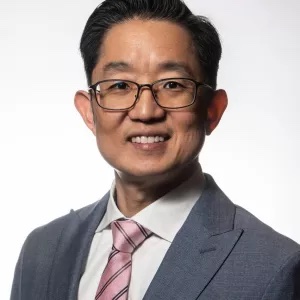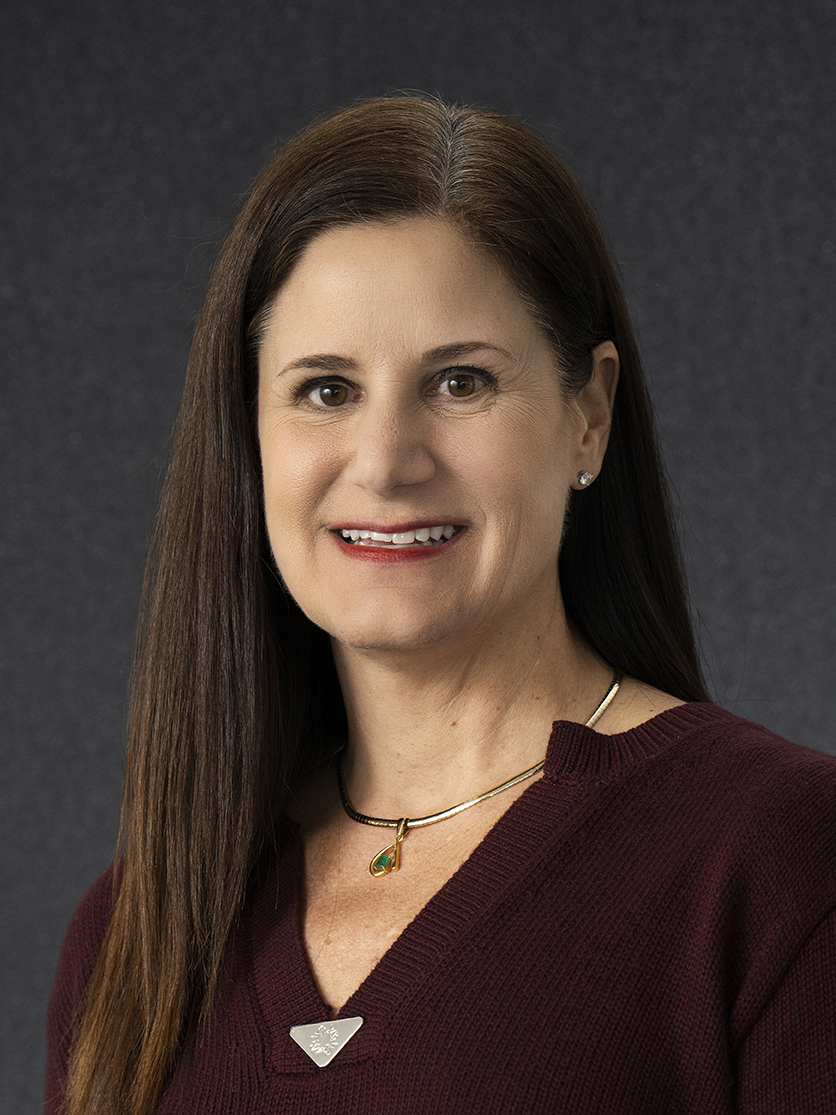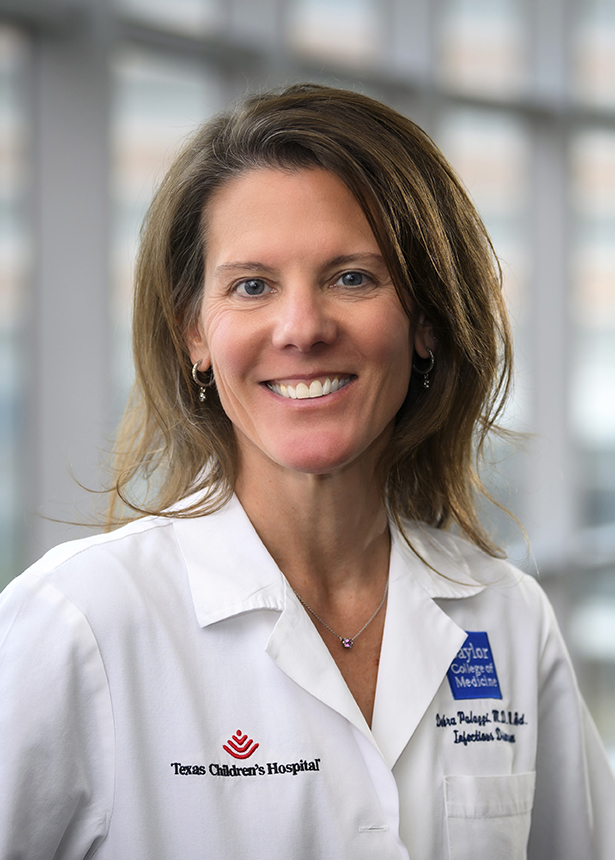.jpg)
.jpg)
Texas Children’s Hospital and the Department of Pediatrics, Baylor College of Medicine is pleased to appoint four accomplished physicians to the ranks of Division Chief. This vital leadership role involves promoting clinical excellence, overseeing and advancing all educational and research programs and fostering faculty academic advancement, professional development and well-being.
These new Division Chiefs are:

Texas Children’s is ranked #1 in pediatric cardiology and heart surgery by U.S. News & World Report. This elite and highly specialized division provides state-of-the-art medical care to patients regionally, nationally and internationally, starting in fetal life and continuing into adulthood. Alongside their clinical brilliance, the cardiologists excel in education (with one of the most competitive fellowship programs in the nation) and research.
Dr. Kim, Professor and Vice Chair of Pediatrics at Baylor College of Medicine, stepped into his new role as Division Chief when his predecessor, Daniel Penny, MD, PhD, MHA, was promoted to become the new Executive Co-Director of the Texas Children’s Heart Center. A faculty member at Baylor since 2006, Dr. Kim previously served as Director of Electrophysiology and Pacing; Director of the Cardiovascular Research Core; and Chief of Strategic Operations at Texas Children’s Heart Center.
Medical school: University of Illinois – Chicago
Residency: University of Chicago
Fellowship: Pediatric cardiology at Baylor College of Medicine, followed by subspecialty fellowship training in heart failure transplantation and electrophysiology
Near-term goals: I want to invest in faculty and leadership development. Our people are truly our greatest resource and will lead the field of pediatric cardiology into the future. I also want to focus on key differentiators for our institution — where we stand out for pushing the frontier and leading the field. I’m particularly inspired by the notion of combining the right organizational structure with the right processes and aligning those with peoples’ talents and passions to help them advance the field.
Research interests: My research interests revolve around the clinical characterization of arrhythmias and cardiomyopathies (diseases of the heart muscle), the delineation of their molecular/genetic basis and optimal treatment approaches with evolving technologies. I have a particular interest in the molecular aspects of arrhythmias and sudden death in heart failure and congenital heart disease, as well as innovative approaches to ablation techniques for arrhythmias in children.
What inspired my career: Congenital heart diseases are the #1 birth defect in the world. I enjoy the longitudinal partnership with patients and their families, from birth through their surgical repairs and interventions, all the way to adulthood. I was drawn to this field because of clinical scenarios like sudden, unexpected death events. I want to understand what causes these events, both molecularly and clinically, and help patients, families and communities navigate the repercussions.
What I enjoy most about Texas Children’s and Baylor: There’s no place like it — the people, the passion and the teamwork. There’s nowhere else in the world where clinicians will find a group of practitioners — physicians, nurses and Advanced Practice Providers — who have the same expertise, talent and drive as they do, and who are all aligned to really push to the next level of care for children with heart disease. So, what I enjoy most are the people with whom I get to work.

A division encompassing many subspecialties and clinics, Developmental-Behavioral Pediatrics focuses on caring for children with developmental disabilities, including autism spectrum disorders, attention-deficit/hyperactivity disorder, intellectual and developmental delays, and birth defects such as spina bifida. This multidisciplinary team of experts enhances understanding of patient functionality and facilitates access to services that support children and their learning — both in therapy and school – to provide these patients with the best possible outcomes in childhood and in adult life.
In her 25-year tenure at Texas Children’s and Baylor, Dr. Ostermaier has served as the Medical Director for many care clinics. She started the Special Needs Clinic at Ben Taub Hospital in 2001, which combined developmental and general pediatric care for medically complex, technology-dependent children and coordinated their in-home care. At the time, it was one of only two such clinics in the area. In the years since at Texas Children’s, Dr. Ostermaier initiated the Special Needs Primary Care Clinic, now called the Complex Care Clinic — the largest of its kind in southeast Texas. She also served as Medical Director for the Spina Bifida Clinic and remains the Medical Director for the Down Syndrome Clinic.
Medical school and residency: Baylor College of Medicine
Near-term goals: Right now across the U.S., there’s a general misalignment between community needs and provider availability. There are only approximately 750 practitioners and 40 fellows in the U.S. focused on developmental-behavioral pediatrics — yet 25% of children have some degree of developmental or behavioral concern and would benefit from a provider visit. As a result, we currently have a long waitlist, like many other practices.
That’s why we’re in the process of changing our model of care to improve provider access and reduce the need for return visits, both of which can shorten waitlists. We are: 1) Moving to a multidisciplinary model in which physicians and psychologists handle new evaluations, and we can delegate 85% of return visits to nurse practitioners and social workers; 2) Offering a Waitlist Workshop to patients and families so they can begin absorbing information and navigating resources while waiting to be seen by a provider; 3) Providing a New Diagnosis Workshop to patients and families to make a diagnosis and associated recommendations less overwhelming and to deliver information in an easier-to-digest way; and 4) Establishing Transitional Workshops to assist patients in entering school at any level or transitioning into adult care.
All workshops are free to the community and are available in English and Spanish. These are all simple yet innovative ideas. We are quickly becoming an educational hub for the community and a model for other institutions — and we are gaining national attention for our efforts.
Research interests: I evaluate the developmental outcomes of children with various conditions, including spina bifida and Down syndrome. I am interested in the dual diagnosis of autism and Down syndrome. About 20% of children with Down syndrome also have autism, a much higher rate compared to the typical population.
What inspired my career: I’ve always been interested in medical complexity and developmental diagnoses. It’s gratifying to watch children learn, grow and improve over time.
What I enjoy most about Texas Children’s and Baylor: I love how dynamic the institutions are, and I appreciate the support I receive for my clinical missions.

Infectious diseases in children are one of the most common reasons for physician visits or hospital admissions. As a result, the Pediatric Infectious Diseases Division is among the busiest at Texas Children’s, with nearly 4,000 inpatient consultations per year as well as an outpatient clinic for new diagnoses or follow-up. Texas Children’s treats children for a broad array of diseases caused by bacteria, viruses and fungi, from straightforward infections in otherwise healthy children — such as pneumonia, complicated urinary tract infections or meningitis — to more unusual infections in immunocompromised patients and return travelers. The Infectious Diseases faculty has advanced expertise in the entire spectrum of diagnosing and treating even the rarest of infections, as well as in the prevention of common and rare infections in both the workplace and the community.
A Baylor faculty member since 2004, Dr. Palazzi led Baylor’s Pediatric Infectious Diseases Fellowship Program for seven years. She also developed the Antimicrobial Stewardship Program and was Associate Division Chief of Infectious Diseases.
Medical school: University of North Carolina
Residency: Carolinas Medical Center
Fellowship: Baylor College of Medicine
Near-term goals: In partnership with the Center for Research Advancement under Lisa Forbes Satter, MD, my goal is to improve our research infrastructure, optimize our efforts and grow our research portfolio. This is part of a greater effort to enhance our recruiting program and accomplish our vision of being the best in the country for treating pediatric infectious diseases in all mission areas.
Research interests: My focus has been on antimicrobial stewardship, which refers to the optimal use of antibiotics, antivirals and antifungals in children. My research seeks to confirm the correct treatment for any patient’s specific situation for the appropriate duration of time, specifically focusing on using the most narrow spectrum agent to avoid overuse and mitigate impact on the patient’s body.
For more than a decade, I have participated in the SHARPS (Sharing Antimicrobial Reports for Pediatric Stewardship) group, a collaborative of more than 30 children’s hospitals focused on establishing best practices for the use of antimicrobials in children.
What inspired my career: I’ve always had an interest in microbiology and, specifically, bacteriology, and how it impacts human health. During medical school and residency, I was motivated by my mentors — infectious disease physicians — who were perfect examples of outstanding clinicians who contributed to advancing science in the field.
What I enjoy most about Texas Children’s and Baylor: One of the most exciting things is the sheer diversity of patients. There are so many avenues for investigation based on what we encounter on a daily basis. I also enjoy the people and the number of different opportunities for collaboration with these talented individuals in clinical or research endeavors.
Dr. Typpo now leads one of the nation’s largest, busiest and highest acuity critical care environments, with more than 7,000 patients admitted to Texas Children’s intensive care units (ICUs) annually. Across four campuses, these ICUs encompass a general medical pediatric intensive care unit (PICU), a transitional ICU, PICUs with subspecialty cohorts dedicated to neurology, surgery, pulmonary and hematology/oncology, and cardiac ICUs that include a neonatal cardiac intensive care unit (CICU), heart failure ICU and a dedicated adult congenital critical CICU. The Intensive Care Service also includes a transport team, the Kangaroo Crew, that brings critically ill children from around the U.S. to Texas Children’s ICUs for care.
Upon completing a fellowship in critical care at Baylor in 2008, Dr. Typpo remained on faculty for one year as a pediatric intensivist before moving to the University of Arizona-Tucson. During her time in Arizona, she became the Chief of Pediatric Critical Care and Medical Director of the Pediatric Cardiac ICU at the University of Arizona College of Medicine. In September 2023, Dr. Typpo, who is herself NIH funded, returned to Texas Children’s and Baylor to assume the role of Division Chief of Critical Care Medicine and Professor of Pediatrics.
Medical school: St. Louis University School of Medicine
Residency and fellowship: Baylor College of Medicine
Near-term goals: My goal is to expand the academic work of our division by publishing the incredible clinical expertise we provide, growing our research infrastructure and personnel, and building collaborations within and across departments. We plan to seek external funding from medical research agencies such as the National Institutes of Health to explore new treatment strategies and care models for patients and their families.
Research interests: My background is in large database analysis studying multiple organ dysfunction in critically ill children with general critical illness or congenital heart disease. I’m investigating how nutritional interventions might improve patient outcomes, focusing on how the intestinal barrier and microbiome might act as a pathway to prevent organ dysfunction syndrome in children. My research has been continuously funded for the last decade and currently includes a study across 12 sites, for which I serve as principal investigator. I’m bringing this study to Texas Children’s and will begin recruiting patients for this study here.
What inspired my career: On the recommendation of medical school faculty, I completed a rotation in the PICU during medical school. I walked in the door and, one after week in, I never looked back. I feel that what I do is the best job in the world, and I can’t imagine doing anything else. In the ICU we are so privileged to serve at the bedside of critically ill children and help these patients and their families through a difficult time.
What I enjoy most about Texas Children’s and Baylor: It’s exciting to return to a unit that has grown in number of faculty, patient volumes and excellence. The environment we work in has changed significantly in the last decade, with the ICU expansion into Legacy Tower and the growth of subspecialty care in cardiac, liver, neurology, nephrology, pulmonology, trauma care and oncology ICU services. We’ve had incredible growth in the provision of extracorporeal therapies, particularly the ECMO service. We have a robust quality and safety structure and operational infrastructure to support all of these clinical programs.
Texas Children’s and Baylor have an incredible investment in making what we do exceptional and ensuring we have the absolute best resources to care for critically ill children. While other organizations are scaling back, Texas Children’s is enhancing what we do and improving patient care all the time. I love being part of a team of providers with an exciting sense of inquiry, where we grow together to develop and pursue the care of the future.